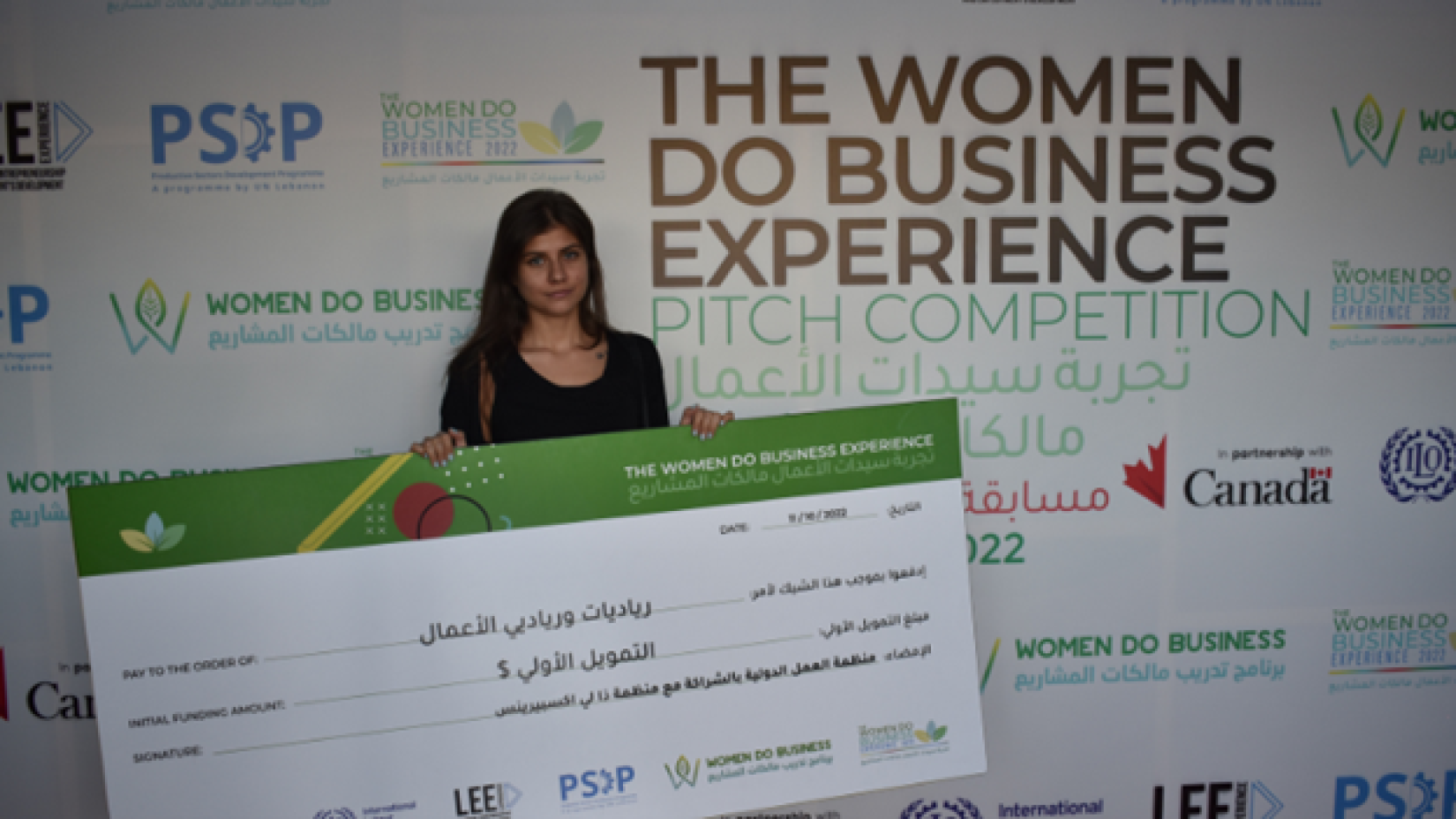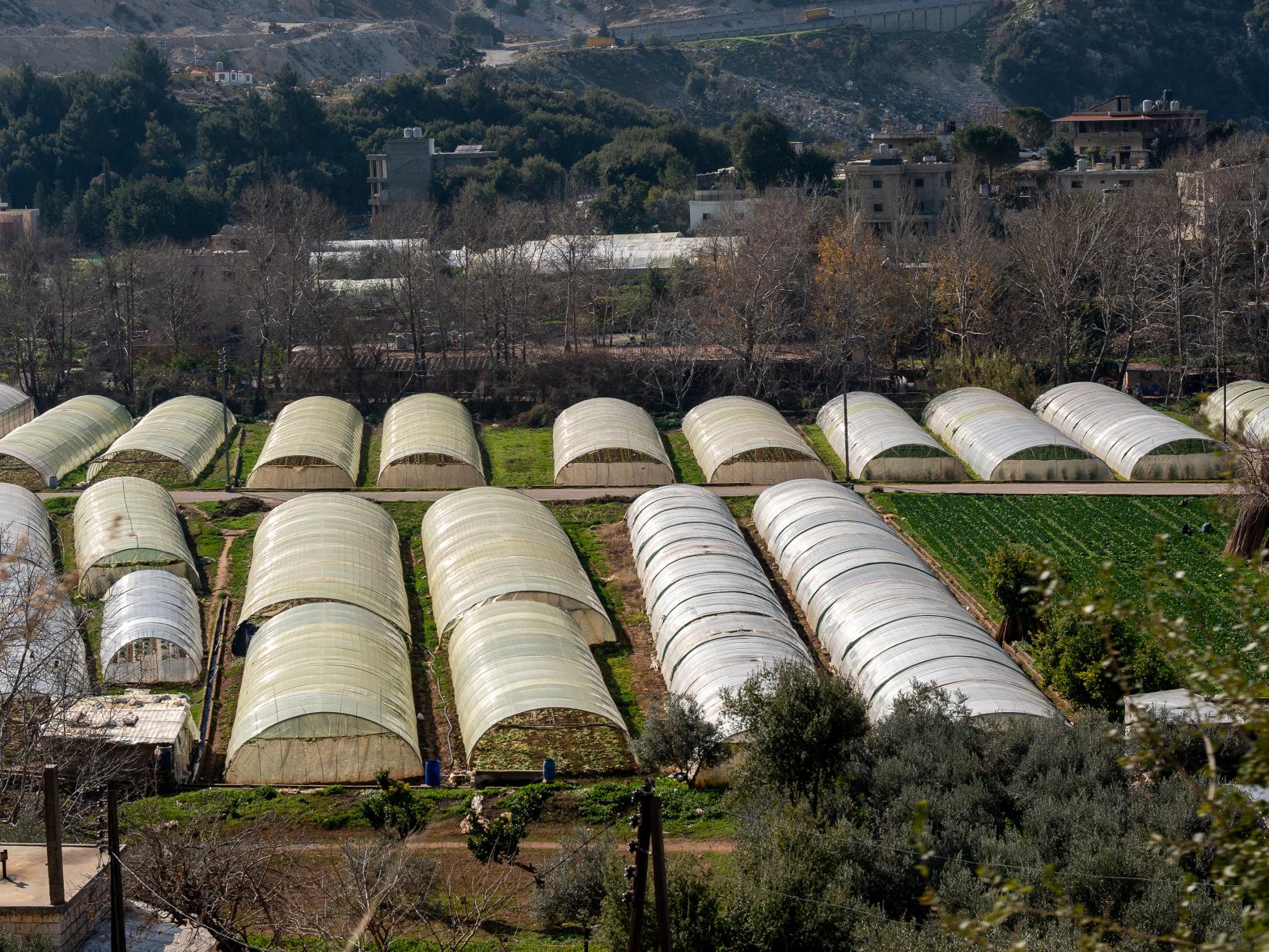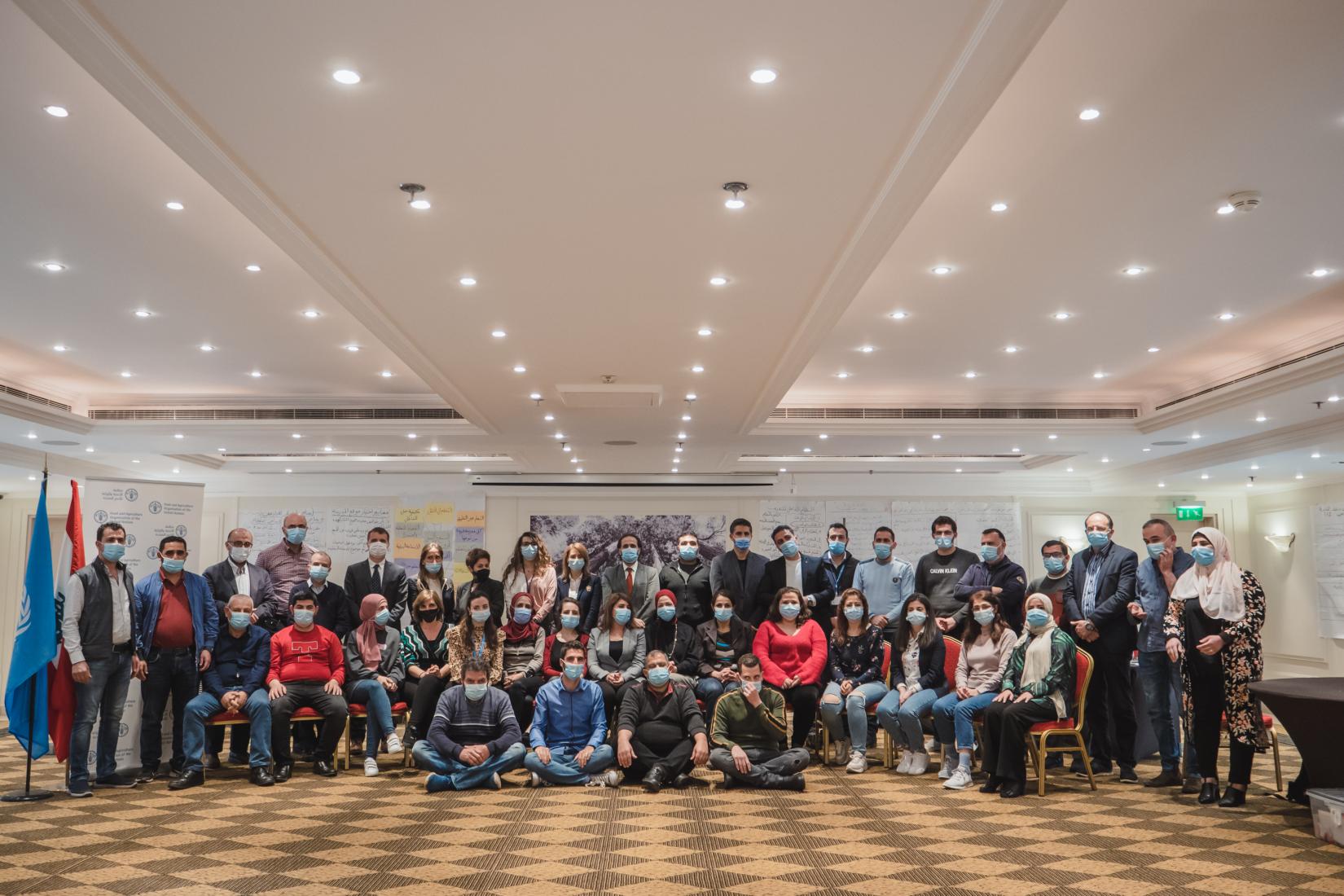IMPROVE THE CAPACITY OF FARMERS, COOPERATIVES & MSMEs
The PSDP focuses on promoting an integrated and focused approach to supporting farmers, cooperatives, entrepreneurs and MSMEs. The programme contributes to the development of the agricultural and agri-food sectors using modern agricultural and industrial technologies that help improve the quality of products, strengthen the human capital, and increase production.
Support provided:
- TECHNOLOGICAL ADVANCEMENT
- INSTITUTIONAL SUPPORT
- SOFT SKILLS DEVELOPMENT
- GENDER SENSITIVE BUSINESS DEVELOPMENT SUPPORT
- AND ENTREPRENEURSHIP TRAINING
- MARKET ACCESS
- ENVIRONMENTAL SUSTAINABILITY
This MICRO-level component of the PSDP is led by FAO and UNIDO and is implemented by all six UN entities managing the PSD program, namely FAO, UNIDO, UN Women, ILO, UNDP, and UNICEF.
FOCUSED AREA: NORTH LEBANON
Northern Lebanon including Akkar has been selected as a target area due to the following reasons:
- Area geography, with year-round yields due to different agroecological zones.
- High linkages opportunities within agri-food value chains.
- High unemployment rate in particular in Akkar and Minniyeh- Danniyeh districts, with a rate of 13.2%.
- The agricultural sector employs more people in the North, 10.5% of total employed, compared to the rest of Lebanon 6.3%.
- Women Empowerment: Women make up 48.7% of the population in North Lebanon. Women farmers are largely engaged with the fruits and vegetables value chain.
TARGETED VALUE CHAIN: FRUITS, VEGETABLES, NUTS AND PULSES
PSDP on the micro level targets the fruits, vegetables, nuts, and pulses value chain due to its impact on the below four factors:
-
Economic: Growth potential and exports in terms of production capacity; stimulating further local production and thus substituting imports and improving food security.
-
Social: Employment and income generation potential, women and youth involvement, and positive impact on rural development.
-
Technological: Innovation capacity, technology, and quality upgrade potential.
-
Environment, nutrition, and local food heritage: The fruit and vegetables sector plays an important role in providing fresh and nutritious food to Lebanese consumers and is closely linked to the preservation of local food heritage through the Mouneh (traditional Lebanese product) and environmental friendliness.
TECHNOLOGICAL ADVANCEMENT
INPUTS & PROVISION:
--> 420 farmers (with 259 women) and 60 workers (with 35 women workers) were supported through awareness sessions, technical training, and provision of inputs on environmental sustainability and Good Agricultural Practices (GAP).
TRANSFERRING OF MANUFACTURING EQUIPMENT:
-
14 entities in the fruits, vegetables, pulses, and nuts value chain benefited from technology upgrades offering innovation and improvements to the existing facilities as well as optimizing the processes and packaging of agri-products.
- 10 MSMEs/Cooperatives were provided with pollution abatement intervention to support their process to be more environmentally friendly (such as solar panels, and water treatment systems).
INSTITUTIONAL SUPPORT
Institutional support has been provided to the Ministry of Agriculture and to the Industrial Development and Research Agro-Agri Center (IDRAC) hosted by the Chamber of Commerce, Industry and Agriculture in Tripoli:
-
Technical trainings carried out in partnership with IDRAC and MoA agricultural centers on GAP following the full crop cycle of the Farmers Field Schools (FFS) approach.
-
Facilitators from MoA agricultural centres and IDRAC were trained and coached to establish and run 14 FFS.
-
IDRAC Training of trainers and certification of 4 staff representatives on Women Do Business curriculum.
-
Seed fund developed to encourage selected 28 MSMEs to access business development services (quality testing) at IDRAC.
-
IDRAC supported to host the Integrated Crop Management (ICM) guidelines for certifications for Apple producers on ICM.
DISTRIBUTION MAP OF FARMERS FIELD SCHOOLS
SOFT SKILLS DEVELOPMENT
BUSINESS LEADERSHIP
- 690 women from various segments of the value chain received training on business leadership, personal development, communication and soft skills to support both their existing and newly created work.
Women's Empowerment Principles (WEP)
-
25 businesses working along the identified value chain received Women’s Empowerment Principles (WEPs) training, coaching and support to establish gender sensitive policies and practices within their enterprises.
-
124 youth completed full package of training, including vocational training on selected value chain, production and processing, life skills, occupational safety and health in the North and Akkar.
APPRENTICESHIP & ON-THE-JOB TRAINING
-
On-the-job training: 45 youth (with 35 women) benefitted from on-the job training for 40 days.
-
Work-based learning: reaching 45 youth with work-based learning (cash for work, internships, on the job training, or apprentice- ship).
SEXUAL HARASSMENT
- 66 PSDP trainers, partners and sub-partners undertook a two-day Training of Trainers session on sexual harassment.
AGRI-FOOD PROCESSING
524 individuals (87% women) received technical skills training for working in the selected value chain:
- Soft skill training: Food safety management, packaging and labeling requirements, marketing, sales management, and risk mitigation.
- Practical skill training: Fruits and Vegetables dehydration, ketchup and tomato juices, pickles and vinegar, jams, and peanut butter.
Training Results:
- 55% witnessed an increase in production
- 10% were able to invent new recipes and develop new products
- 51% witnessed an increase in sales
GAP TRAINING
- 305 women and men farmers (177 women) technically trained on GAP and Occupational Safety and Health (OSH).
- 305 men and women farmers were enrolled in 14 FFs, as a participatory learning and problem-solving approach during the cropping season.
GENDER SENSITIVE BUSINESS DEVELOPMENT SUPPORT AND ENTREPRENEURSHIP TRAINING

"This experience was a learning opportunity. We have extended our knowledge and we have also learned new means to improve our business. The pitching event and being a winner was exciting. We can work on a new range of products in order to satisfy our customers' needs and improve our business" -- Hind Sid Nehme - owner of HESTIA
MSMEs prioritizing women and youth start-ups in the selected value chains (fruits, vegetables, & nuts) received coaching on entrepreneurship training program.
A progressive training cycle has been conducted, starting with 218 women-led and men-led MSMEs and entrepreneurs who received Women Do Business training, followed by an advanced “business resilience” workshop with:
- 108 selected beneficiaries who presented a business plan at the end of their participation for evaluation and selection for the business plan competition event.
- 102 beneficiaries succeeded in submitting a feasibility study
- 40 were selected to take part of the “Women Do Business Experience” competition and received a training for business pitch presentation in front of an audience.
Twenty beneficiaries were announced as winners of a business plan competition and received a grant (total $100,000) and business development coaching led by PSDP ILO's implementing partner the LEE Experience. Watch the video and learn more about these winners:
Read about PSDP ILO's assessment report on this LINK.
MARKET ACCESS
RE-BRANDING
- 17 products reviewed in terms of labeling review and design upgrade.
CERTIFICATION
- Support was provided to farmers in moving towards GAP certification: 4 farms were supported for organic agriculture certification (with 3 women-led farmers) and 65 farmers (45 women farmers) for Integrated Crop Management group certificates
- Support was provided to 3 of the FFS groups in formal organizations as cooperatives.
- Linkages with value chain actors and traders at the local community.
ACCESS TO INTERNATIONAL MARKETS
- 20 small-scale businesses were supported in improving their market access through business development support.
ENVIRONMENTAL SUSTAINABILITY
ENVIRONMENTAL AND ENERGY TRAINING AND AUDIT
UNDP conducted an Environmental and Energy Audit training session for 40 identified MSMEs and cooperatives to enhance their energy efficiency and reduce their carbon footprint. This entailed providing technical training and awareness raising to the 40 staff members of MSMEs and cooperatives on the utilization of environmentally friendly techniques, technologies, and tools to enhance their processes and become more environmentally friendly in their business operations.
A competition is being initiated under this component of the PSDP program to identify the MSMEs/Cooperatives that will receive in-kind contributions that aid their efforts towards environmental sustainability, such as providing them with solar panels, water treatment systems, and other equipment based on their requirements.



